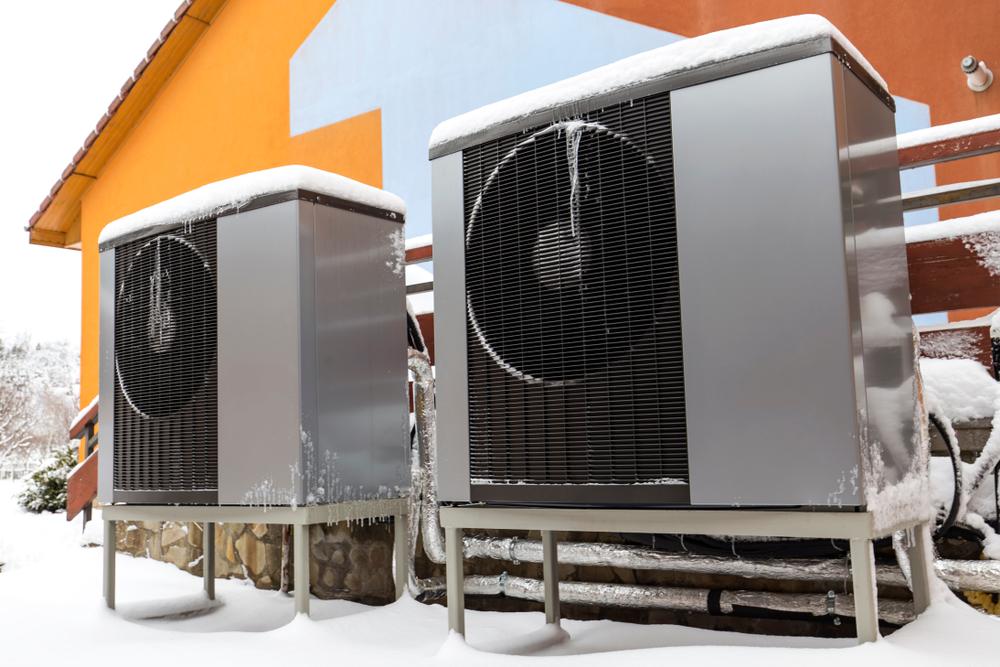
Welcome to part two of our “Future of Low Carbon Home Comfort” blog series!
As you may remember, this series began in part as a response to our recent post about climate change in 2018. As we explored climate change, and how human activities have contributed to that phenomenon here in Maine and on the planet, we found that about 87% of human-produced CO2 emissions come from burning fossil fuels like oil, coal, and natural gas. This makes it all the more important for homeowners in Maine and elsewhere to reduce their reliance on fossil fuels and establish what we’re calling “low carbon home comfort.”
In part one of this series, we explored the first step to achieving low carbon home comfort: improving home energy efficiency through upgrades like weatherization and basement encapsulation. Improving home efficiency first is crucial because as you move on to making heating system improvements or even installing solar, you can rest assured that these new systems will be sized correctly and perform optimally in your home.
Now, in part two the series, we’re diving further into how you can cut your reliance on fossil fuels and achieve low carbon home comfort by switching to a heat pump heating and cooling system.
Heat Pumps Conserve More Energy
Heat pumps are growing in popularity because of their ability to provide energy efficient heat in the winter and efficient cooling in the summer. But how do they work so efficiently to keep your home comfortable?
Heat pumps are efficient because they are able to transfer heat from one place from another. Rather than burning fossil fuels like oil or natural gas to generate heat, they use electricity and refrigerant line to move already-existing heat. In the winter, a heat pump absorbs ambient outdoor heat, compresses it, and moves it indoors. In the summer, it uses a reverse process to move unwanted heat outdoors.
Thanks to this energy efficient process, heat pumps can achieve efficiencies well above 100% and provide hot air in cold climates even when outdoor temperatures are as low as -15 °F.
Efficient Heating Options for Your Maine Home
Heat pump systems come in a wide array of options, so there is sure to be an energy efficient option for your home.
Ductless Heat Pumps
Ductless heat pumps, also known as mini-split heat pumps, consist of one outdoor unit and one or more indoor air handlers. They are “ductless” because they do not rely on ductwork to distribute conditioned air. Instead, indoor air handlers are installed directly in the rooms they condition and come in four styles: wall units, floor units, ceiling cassettes, and mini-ducts.
You might choose to install one indoor air handler in a particularly hard-to-heat room, or you might install multiple air handlers throughout your home for a complete heating and cooling solution. If you’re looking to minimize your reliance on fossil fuels like oil, propane, and natural gas and you want to take the ductless route, we recommend talking to one of our trusted heat pump partners about installing a whole-home ductless heat pump system.
Ducted Heat Pumps
Do you already have existing ductwork you want to take advantage of? A central, ducted heat pump might be best for you. A ducted heat pump replaces your existing heating and cooling systems, such as a furnace and air conditioner, and provides energy efficient heating and cooling with one unit. Again, we recommend getting in touch with one of our heat pump partners if you’re considering this heat pump option.
High-Efficiency Pellet Boilers
In very cold parts of Maine, you might consider pairing your heat pump with a high-efficiency pellet boiler. Pellet boilers are similar to pellet stoves and use local, renewable fuel — making them a Maine grown, lower carbon heating solution. One of our heat pump partners can help you decide if this is the best heat pump option for you.
Get Rebates When You Upgrade Your Heating System
Aside from energy efficiency and reduced reliance on fossil fuels, one of the main advantages of switching to a heat pump system is that you could qualify for valuable rebates from Efficiency Maine. Efficiency Maine is currently offering rebates of up to $750 for installation of qualifying ductless heat pumps. You can also receive a rebate of up to $3,000 when you install a biomass boiler or furnace, such as a pellet boiler.
It All Starts with Improving Home Efficiency
Remember: reducing your reliance on fossil fuels and achieving low carbon home comfort starts with making your home more energy efficient. If you’re considering upgrading to a heat pump system, talk to our team about how you can reduce your home’s energy load and improve comfort first with smart upgrades like insulation, air sealing, and basement encapsulation. Taking this vital step will help ensure that your new heat pump runs at peak performance. Once we have made your home as efficient as possible, we can connect you with one of our trusted partners for professional heat pump installation. Schedule a free energy consult with us to get started.
Be sure to stay tuned for part three of this series: solar!
